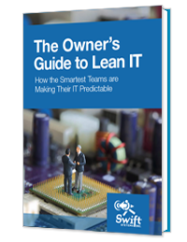
What is Virtual Private Cloud (VPC)?
Instead of sharing resources and space in public infrastructure, Virtual Private Clouds (VPCs) operate with a particular level of isolation between customers.
This is accomplished via a Virtual Local-Area Network (VLAN) or private IP subnet on a per-customer basis, which enhances the level of security.
It is this isolation that has led to the term “virtual private”, which means that the user is in a cloud, but does not depend on any physical hardware.
How a Virtual Private Cloud Works
VPCs were introduced for customers who want to take advantage of the benefits of cloud computing but are also concerned about specific aspects of the cloud. Common concerns involve security, privacy, and the loss of control over sensitive data. In response to this customer requirement, several public cloud vendors ended up designing a VPC offering a part of a vendor’s public infrastructure but comprising dedicated cloud servers, virtual networks, private ID addresses, and cloud storage reserved for a VPC customer.
In a VPC model, the public infrastructure-as-a-service (IaaS) provider is in charge of guaranteeing that each private cloud customer’s data continues to be isolated from another customer’s data both in transfer and within the cloud provider’s network.
This can be achieved via the use of security policies needing some or all of the following elements: tunneling, private IP addressing, encryption, or allocating a unique virtual local area network (VLAN) to each customer.
A VPC user can define and directly manage network components, including IP addresses, network gateways, access control policies, and subnets.
Benefits of a Virtual Private Cloud
Following are some of the key benefits of a <virtual private cloud:
- Security
Information passed via a VPC stays within a customer’s control and does not cross the internet. Furthermore, with all customers working on the same back-end infrastructure, VPC providers are known to have immense interest in making things run securely and smoothly, while continuing to maintain high levels of uptime. In order to satisfy clients, trustworthy VPC providers generally spend too much money in order to attain a recognizable level of security and reliability.
- Improved performance
You will be able to prioritize the network traffic of specific applications in order to enhance their performance, thus being able to eliminating potential blockages.
- On-demand flexibility
With VPS, you will be able to design the cloud architecture that best serves your company’s requirements. For instance, you will be able to smoothly set up your VPC for contractors to use separate direct connections that are not routed via your internal network.
- Seamless upgrades
With all customers working on the same hardware, the VPC provider will be able to consistently upgrade everyone with no downtime.
Most Virtual Private Cloud providers will rejuvenate the original hardware while constantly obtaining better and faster hardware. This indeed will result in a customer’s workload gradually becoming quicker and more secure.
- Data control
Your VPC is separated from other clouds at the network layer, allowing you to control your data and preventing it from blending with the data of other entities.
To get a VPC service for your business, you need not worry because we at Swift Systems are here to give you the best through our Swift Virtual Private Cloud Platform. Through this VPC platform, Swift Systems will examine, customize, and deploy cloud hosting options that best meet your company’s requirements.
Swift Systems has an established track record of providing VPC services for regional and Maryland business customers via its own hi-tech data centers. Swift Systems will design and implement set-it-and-forget-it information systems and VPC computing solutions that offer universal access and permit companies to focus on what they do best.
Swift VPC applications are thus here to increase your IT reliability and up-time. From file management and email to consistent backup solutions, Swift Systems will help you build the IT systems capable of taking your business to the next level.

IT systems are foundational to modern businesses. Too often, that foundation is unsteady. Unpredictable outages, insecure networks, and unreliable performance from mission-critical systems can jeopardize your entire business.
There’s a better way. Learn how.
Get in touch with us for a free consultation with one of our technical experts. We’ll review your current systems, assess your needs, and identify the coverage options to best meet them.
Get in touch with us by phone:

